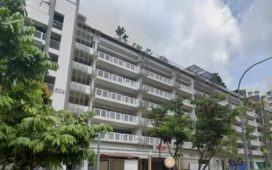ICYMI, Non-Constituency MP (NCMP) Hazel Poa raised the issue of the five-yearly review of political salaries in parliament earlier this week and asked if a committee has been appointed to oversee the decision already.
Replying to her query, Minister-in-charge of the Public Service Chan Chun Sing said that the next review will be targeted for this year.
The last time a committee was appointed was in 2017.
Chan also brought up a 2012 White Paper on ‘Salaries for a Capable and Committed Government’ that recommended appointing an independent committee to review the salary framework for political appointment holders.
Chan also said that in 2018, the appointed committee had concluded that “the salary framework remained relevant and sound, and its recommendations included adjusting the salary levels of political appointment holders to match the updated benchmark.”
The million-dollar team
Just to remind everyone, political appointment holders in Singapore are the most highly paid in the world. The government has justified their salaries by saying they’re necessary to attract the country’s top talent and prevent the kind of corruption that is rife in other Southeast Asian countries.
An infographic was shared recently on several platforms, including the Singapore subreddit, showing Singapore with the highest salary for its head of government of any country in the world.

Though that chart is based on heads of state, it’s no secret that Singapore’s ministers get paid handsomely as well.
According to the Public Service Division, as of 2023, the benchmark level for a minister’s monthly salary stands at S$55,000, working out to an annual salary of S$1.1 million.
FYI, in 2012, a bunch of paycuts happened. The president took a 51% paycut while the prime minister’s pay was cut by 36% (after which he still remained the world’s best-paid national leader). The cuts were recommended by a committee, which was chaired by then National Kidney Foundation chairman Gerard Ee, after an election that saw opposition parties make significant gains and the ruling People’s Action Party (PAP) win with its lowest overall vote total since independence in 1965.
Other ministers and political office holders also took paycuts in 2012.
How are their salaries determined?
The Public Service Division states that the benchmark for an entry-level minister is based on the median income of the top 1,000 Singapore citizen earners, with a 40% “discount” to reflect the “ethos of political service”.
Salaries of other political appointment holders are determined based on ratios to the pay of an entry-level minister, as well as their different roles and responsibilities.
For example, the prime minister earns twice the salary of an entry-level minister. Wew.
“The salaries of political appointment holders will be adjusted according to the movement of the benchmark as it responds to market conditions,” the PSD website reads.
Paycut or pay increase this year?
It will be interesting to see what the appointed committee decides on this year, given current market conditions as well as the fact that we’re just emerging from the pandemic.
Comments from the public on social media are a mixed bag, with some proclaiming that there’s a good chance we will see another cut given the current economic climate.

There are also calls for the ministers to “lead by example” and use the money to help lower income families.

Tan Kin Lian, who served as the chief executive officer of NTUC Income between 1997 and 2007, and stood for the 2011 presidential election, also expressed his views on Facebook.
He too suggested that ministers take a salary cut.
Others seem unfazed and pointed out that we can expect an increase since there are no elections around the corner and that they could probably “justify” giving themselves raises for doing a stellar job during the difficult Covid-19 period.

There were also some who questioned if the salary review process is problematic.

Then of course, there are the ones who have obviously cracked the code.

That is some big brain energy right there.
Also check out these other stories:













